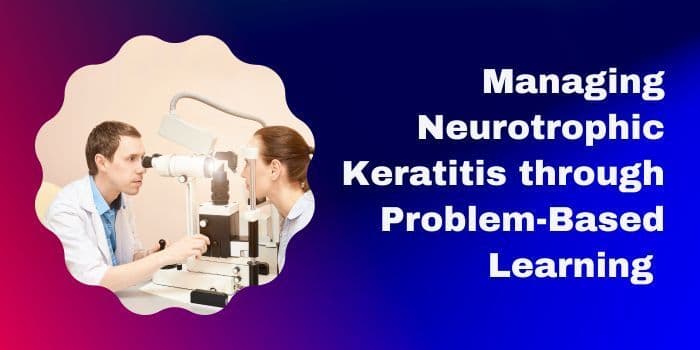
Managing Neurotrophic Keratitis Through Problem-Based Learning
Neurotrophic keratitis is a rare degenerative eye condition that occurs due to damage to the trigeminal nerve, which controls the sensation of the cornea. The condition can lead to severe corneal damage and vision loss if not managed properly.
To effectively manage neurotrophic keratitis, a problem-based learning approach can be adopted. Problem-based learning involves analyzing and solving real-world problems in a collaborative and interactive learning environment.
As an expert in ophthalmology, Sumit Kala believes that problem-based learning can help clinicians develop a deeper understanding of neurotrophic keratitis and its management. By working through real-world cases and scenarios, clinicians can learn to identify the signs and symptoms of the condition, as well as the various treatment options available.
Problem-based learning can also help clinicians develop critical thinking and decision-making skills that are essential for managing complex cases like neurotrophic keratitis. By working in groups and collaborating with peers, clinicians can gain new perspectives and insights that can inform their clinical practice.
Overall, managing neurotrophic keratitis through problem-based learning can be an effective approach for clinicians looking to enhance their knowledge and skills in this area. With the guidance of experts like Sumit Kala, clinicians can gain a better understanding of the condition and improve patient outcomes through evidence-based management strategies.
Appreciate the creator